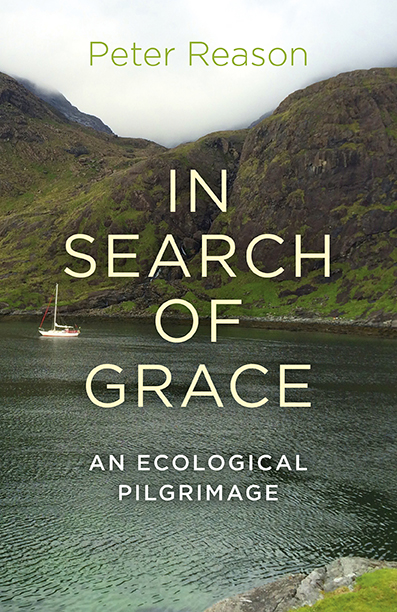In Search of Grace
We must transform our perception of our relationship with the Earth, if we ever hope to save ourselves from ecological disaster.

We must transform our perception of our relationship with the Earth, if we ever hope to save ourselves from ecological disaster.
We must transform our perception of our relationship with the Earth, if we ever hope to save ourselves from ecological disaster.
Ecology, Environmental conservation & protection, Ethics & moral philosophy
To recover from ecological disaster, we humans must transform the sense of who we are in relation to the Earth. In Search of Grace is the story of an ecological pilgrimage undertaken by the author in his small yacht, Coral, from the south of England and round the west coast of Ireland, to the far north of Scotland. It explores themes of pilgrimage: the overall pattern of separation from the everyday, venturing forth, and returning home. It tells of meeting wildlife, visiting sacred places, confronting danger, expanding and deepening the experience of time, of silence and of fragility.
Click on the circles below to see more reviews
An engaging read which is helpfully upfront about the messy human reality of pilgrimage - very far from a continuous series of flow experiences, epiphanies of so on. His pilgrimage is ecological rather than explicitly religious and draws on a wide range of traditions, including secular/scientific ones - but with a great deal of respect for the religious underpinnings of pilgrimage. Review continued at: https://seamussweeney.wordpress.com/2017/09/24/peter-reason-on-being-a-pilgrim-and-being-a-tourist/ ~ Seamus Sweeney , https://seamussweeney.wordpress.com/2017/09/24/peter-reason-on-being-a-pilgrim-and-being-a-tourist/
Peter Reason puts to sea in a purposeful wandering. This man in a boat is on an ecological pilgrimage and apart from having the skills and temperament to avoid capsize and deadly rocks, to weather storms and just not drown in a wild ocean that has us landlubbers shaking in our boots, there is work to do. How do you explore a deeper connection with the wild, the more-than-human world? How can a spiritual response to Nature support the pragmatic prevention of those destructive impulses that are causing such a dreadful state of affairs in the natural world? How do you articulate an experience of those unexpected and spontaneous sacred moments? This account from the liminal edge between these notions goes much further than anyone contemplating a sightseeing voyage would dare. ~ Paul Evans, author of Field Notes from the Edge: Journeys through Britain's wilderness
In an age of ecological crisis, perhaps humanity itself needs a pilgrimage. Perhaps we need to seek out the truth of who we are and what we have done, and leave a space for some kind of transformative grace to enter. Peter Reason’s journey may show some of us the way. His book is both brave and necessary. ~ Paul Kingsnorth, author of The Wake and Beast
How do we create a new healing relationship between the human and the more-than-human world and discover a new sense of what it means to be a responsible species? These are urgent questions for us all, if we going to learn how to change from destroying the planet to restoring it. Peter Reason is a poetic story-teller, a courageous pilgrim, a questioning philosopher and an explorer of the emergent, who beautifully and generously shares his ‘moments of grace’ at home and at sea. ~ Prof. Peter Hawkins, author of Leadership Team Coaching
In his years at the University of Bath, Peter Reason rose to prominence as a brave pioneer of Action Research - a participative approach to scholarly and whole-life inquiry, that refuted narrow reductionism. Now, in this meditatively written and richly interwoven account, he takes his inquiry further. Sailing his boat around the seas of Celtic lands, Reason gleans insights into these our troubled times, as glimpsed through the cracks of a deeper grace belonging to this planet Earth. ~ Prof. Alastair McIntosh, author of Poacher’s Pilgrimage: An Island Journey
Peter Reason tackles huge themes with clarity and intelligence. Through his own private pilgrimage he asks, how a modern citizen can live on good terms with the rest of nature’s glorious republic? And what can we do to honour the four-billion-year-old miracle that has given us all the gift of life? This is an important and challenging work. ~ Mark Cocker, author of Crow Country and Claxton: Field Notes from a Small Planet